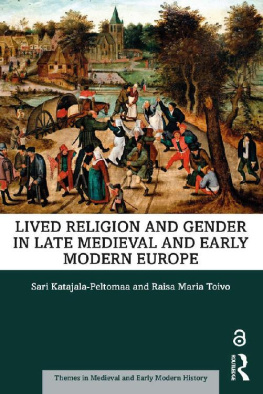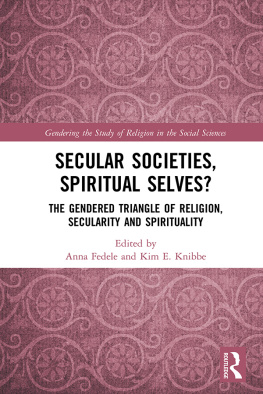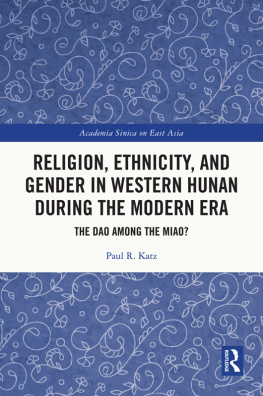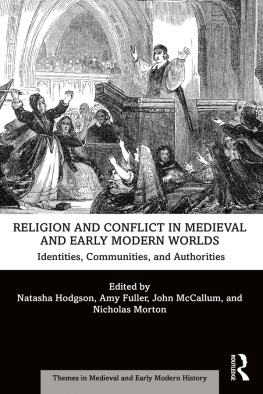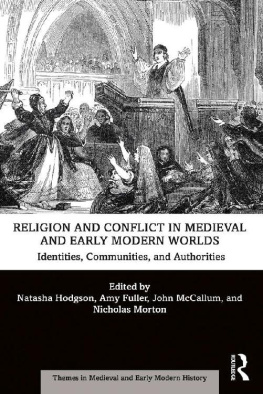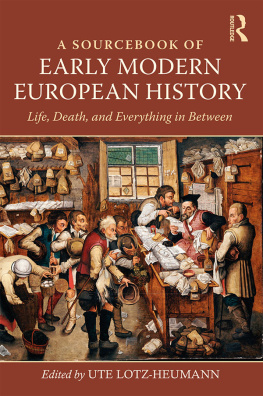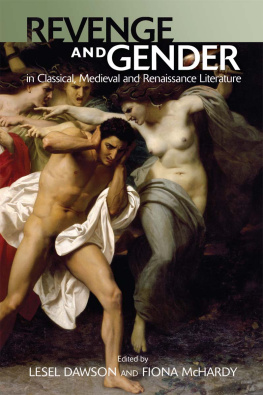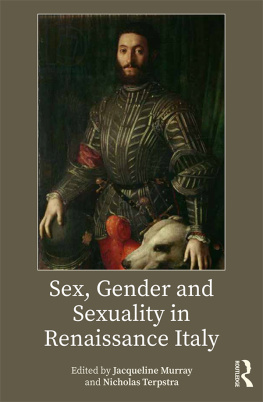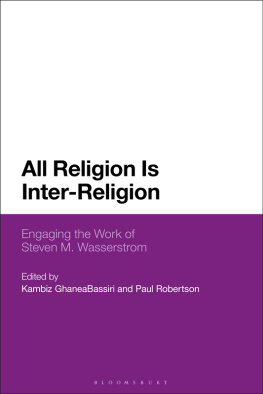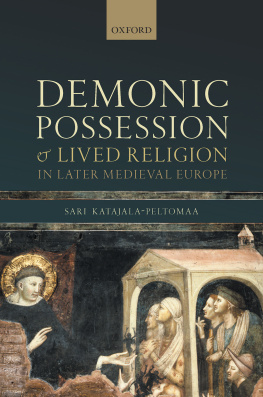LIVED RELIGION AND GENDER IN LATE MEDIEVAL AND EARLY MODERN EUROPE
This study is an exploration of lived religion and gender across the Reformation, from the 14th18th centuries. Combining conceptual development with empirical history, the authors explore these two topics via themes of power, agency, work, family, sainthood and witchcraft.
By advancing the theoretical category of experience, Lived Religion and Gender reveals multiple femininities and masculinities in the intersectional context of lived religion. The authors analyse specific case studies from both medieval and early modern sources, such as secular court records, to tell the stories of both individuals and large social groups. By exploring lived religion and gender on a range of social levels including the domestic sphere, public devotion and spirituality, this study explains how late medieval and early modern people performed both religion and gender in ways that were vastly different from what ideologists have prescribed.
Lived Religion and Gender covers a wide geographical area in western Europe including Italy, Scandinavia and Finland, making this study an invaluable resource for scholars and students concerned with the history of religion, the history of gender, the history of the family, as well as medieval and early modern European history.
Sari Katajala-Peltomaa is Senior Research Fellow at the Academy of Finland Centre of Excellence in the History of Experiences at Tampere University, Finland. She specialises in late medieval hagiography and especially in canonisation processes. Her publications include Demonic Possession and Lived Religion in Later Medieval Europe (2020).
Raisa Maria Toivo is Professor at Tampere University and the Academy of Finland Centre of Excellence in the History of Experiences at Tampere University, Finland. She specialises in history of early modern religion, gender, family and court records. Her publications include Faith and Magic in Early Modern Finland (2016).
Themes in Medieval and Early Modern History
Series Editor: Natasha Hodgson,
Nottingham Trent University.
This is a brand new series which straddles both medieval and early modern worlds, encouraging readers to examine historical change over time as well as promoting understanding of the historical continuity between events in the past, and to challenge perceptions of periodisation. It aims to meet the demand for conceptual or thematic topics which cross a relatively wide chronological span (any period between c. 5001750), including a broad geographical scope.
Florence in the Early Modern World
Nicholas Baker and Brian Maxson
Dynastic Change
Legitimacy and Gender in Medieval and Early Modern Monarchy
Edited by Ana Maria S. A. Rodrigues, Manuela Santos Silva and Jonathan W. Spangler
The Origins of the Consumer Revolution in England
From Brass Pots to Clocks
Joanne Sear and Ken Sneath
Lived Religion and Gender in Late Medieval and Early Modern Europe
Sari Katajala-Peltomaa and Raisa Maria Toivo
Cultures of Law in Urban Northern Europe
Scotland and its Neighbours c.1350c.1650
Edited by Jackson W. Armstrong and Edda Frankot
For more information about this series, please visit: www.routledge.com/Themes-in-Medieval-and-Early-Modern-History/book-series/TMEMH
LIVED RELIGION AND GENDER IN LATE MEDIEVAL AND EARLY MODERN EUROPE
Sari Katajala-Peltomaa and Raisa Maria Toivo
First published 2021
by Routledge
2 Park Square, Milton Park, Abingdon, Oxon OX14 4RN
and by Routledge
52 Vanderbilt Avenue, New York, NY 10017
Routledge is an imprint of the Taylor & Francis Group, an informa business
2021 Sari Katajala-Peltomaa and Raisa Maria Toivo
The right of Sari Katajala-Peltomaa and Raisa Maria Toivo to be identified as authors of this work has been asserted by them in accordance with sections 77 and 78 of the Copyright, Designs and Patents Act 1988.
With the exception of the Introduction, no part of this book may be reprinted or reproduced or utilised in any form or by any electronic, mechanical, or other means, now known or hereafter invented, including photocopying and recording, or in any information storage or retrieval system, without permission in writing from the publishers.
The Introduction of this book is available for free in PDF format as Open Access from the individual product page at www.routledge.com. It has been made available under a Creative Commons Attribution-Non Commercial-No Derivatives 4.0 license.
Trademark notice: Product or corporate names may be trademarks or registered trademarks, and are used only for identification and explanation without intent to infringe.
British Library Cataloguing-in-Publication Data
A catalogue record for this book is available from the British Library
Library of Congress Cataloging-in-Publication Data
Names: Katajala-Peltomaa, Sari, author. | Toivo, Raisa Maria, author.
Title: Lived religion and gender in late medieval and early modern
Europe / Sari Katajala-Peltomaa and Raisa Maria Toivo.
Description: Abingdon, Oxon ; New York, NY : Routledge, 2021. |
Series: Themes in medieval and early modern history | Includes
bibliographical references and index.
Identifiers: LCCN 2020025642 |
Subjects: LCSH: EuropeReligionHistory. | EuropeReligious life
and customsHistory. | MenReligious lifeEuropeHistory. |
WomenReligious lifeEuropeHistory.
Classification: LCC BL689 .K38 2021 | DDC 274.06dc23
LC record available at https://lccn.loc.gov/2020025642
ISBN: 978-1-138-54455-0 (hbk)
ISBN: 978-1-138-54458-1 (pbk)
ISBN: 978-1-351-00338-4 (ebk)
Typeset in Bembo
by Apex CoVantage, LLC
CONTENTS
Guide
This project can be claimed to have started in January 1999 when we began working with our doctoral dissertations and shared an office. Ever since then we have discussed, pondered and argued about gender and religion with each other but also within ourselves. This is no wonder since so much has changed in these fields of research during this time. Luckily, we have not been alone in these discussions but have been blessed with colleagues sharing their thoughts and ideas with us. Clearly enough, the debt of gratitude has grown enormous during these years. Without naming people who may not want to be named, we acknowledge that we have benefitted from discussions held both within our Tampere University history community, especially at Trivium Tampere Centre of Classical, Medieval and Early Modern Studies, as well as elsewhere in conference and network circuits.
Our work has been generously funded by the Academy of Finland, most lately in the form of the Academy of Finland Centre of Excellence in the History of Experiences (HEX) at Tampere University, and Raisas Academy Fellowships project Catholic Reformation in Lutheran Sweden. We thank the Academy for making our work possible, and HEX, for providing an encouraging and critical research community where we have been able to develop our conceptual and theoretical standpoints. We thank Mathew James for checking the language of the book and Routledge for their patience during this project and for accepting our book for publication.
Finally, we take this opportunity to acknowledge each other. While Sari is an expert on the medieval period and Raisa on the early modern, the whole of this book is more than the sum of our two bits of knowledge put side-by-side. Every sentence and every thought in this book should be credited to or blamed on both of us equally.

